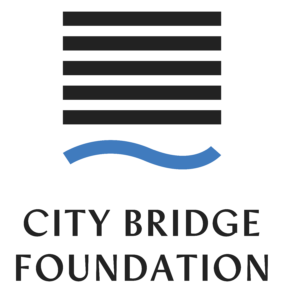A call for Expressions of Interest is now live, looking for partners to lead workforce development in adult social care. The call is part of Better Careers for Better Care, a strategic and collaborative funding programme to support better career and professional development opportunities for people working in adult social care, and specifically those working with people in later life.
The call is open between Monday 13th November 2023 and 12 noon, Wednesday 10th January 2024.
The Rayne Foundation believes – and evidence shows[1] – that providing better career and professional development opportunities for people working in care will result in better care for those who need it most. The Foundation has funded organisations supporting care for people in later life since its founding in 1965 and for many years, improved quality of life for carers and older people has been an area of special interest.
The Foundation is now developing the proactive funding programme Better Careers for Better Care, focused on workforce development within social care for people in later life. This is a new focus and approach for the Foundation and follows several years exploring and testing how the Foundation’s resources could be used to have the greatest positive impact on the quality of life for carers and older people. Learn more about our journey, learning and rationale here and here.
We want to work alongside sector leaders and innovators to develop ambitious proposals for funding and collaboration with the potential to transform career and development opportunities for care workers working with people in later life.
The Foundation has earmarked £2 million to Better Careers for Better Care. Our funding is available to organisations working in England in the first instance, acknowledging that each national health and care context is distinct. We hope to fund programmes in Northern Ireland, Scotland and Wales in the future. Our initial aim is to achieve a geographical spread across England with grants made in both urban and rural settings, guided by the applications received.
On this webpage:
Through our discussions with leaders in the social care sector, we have identified the following areas of work that we believe could have a transformative impact for care workers and the people they work with:
- Recognising, acknowledging, and championing the value and skills of care workers.
- Sustainable recruitment into the social care workforce.
- Design and delivery of career progression opportunities for staff across the social care workforce, and the support needed to access them.
- Development of social care leaders.
- Empowering and enabling social care leaders to contribute to strategy and policy development in health and social care.
- Co-production at the local, regional and/or national level of career development opportunities and/or workforce development plans.
- Establishing inclusive, learning cultures within care in later life, and evidencing the positive impact on both the workforce and the quality of care for older people.
- Connecting care provision for people in later life with the wider community to support recruitment and retention within the social care workforce.
Applicants will demonstrate that they are:
- listening to and/or committed to involving the voice of care staff in their plans to improve staff development opportunities;
- collaborating actively with the wider care landscape in their area and building on any existing, related work;
- working to build equity, diversity and inclusion as central tenets within workforce development and career progression plans;
- contributing funding and/or significant in-kind support to the initiative to show their commitment (relative to the capacity of the applicant organisations); and
- thinking about opportunities for wider application and dissemination of the results of their work.
The Rayne Foundation acknowledges that:
- The social care sector remains under huge pressure due to long-standing staffing issues.
- The impact of these initiatives will be limited without funding and pay reform; that said, pay on its own will not address all the challenges.
- There is no one single solution to the many and varied workforce challenges within adult social care, and action is needed at multiple levels to contribute to change at a systems level.





